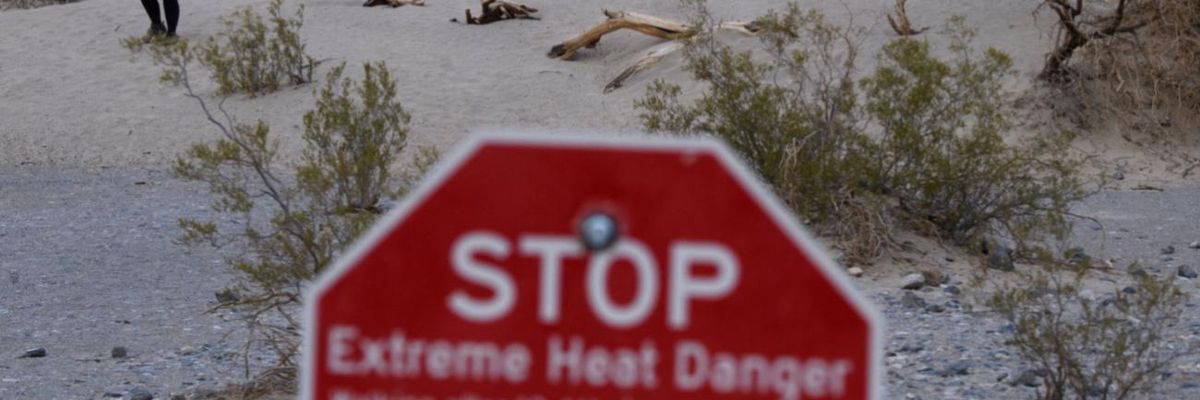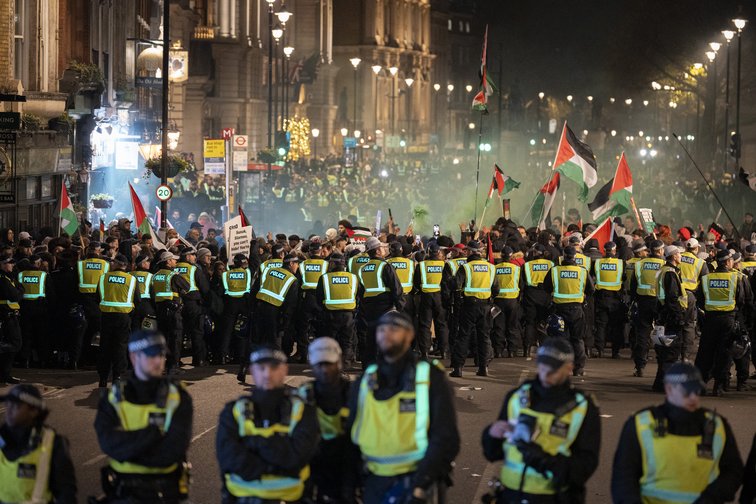As Outrage Over Gaza Grows, Biden Hides From Protests Amid High-Stakes Election
Original article by JULIA CONLEY republished from Common Dreams under Creative Commons (CC BY-NC-ND 3.0).

“A Democratic campaign that is scared of college campuses is not a campaign that can win given today’s coalitions,” said one journalist.
Public opposition to U.S. President Joe Biden’s support for Israel pushed more than 100,000 primary voters in the key state of Michigan this week to vote “uncommitted” instead of backing him, but while the Biden campaign brushed the protest votes off with promises to “listen to what folks’ concerns are,” the president is reportedly intent on avoiding contact with pro-Palestinian constituents as much as possible.
As NBC News reported Friday, Biden’s campaign is considering hiring a private firm to vet attendees of a major upcoming fundraiser in New York in order to “weed out potential protesters.”
The fundraiser is one of several campaign events that the Biden team has planned with a new level of secrecy following protests that disrupted speeches he gave earlier this year.
According to NBC, the event will likely be held at Radio City Music Hall, but the campaign hasn’t confirmed the location and has only publicized the date—March 28.
The campaign also kept the location of Biden’s recent event in Culver City, California under wraps beforehand, and Biden opted to announced a $1.2 billion student loan forgiveness program in front of a small group at a public library there instead of speaking about the issue at a college campus.
Campuses are among the places that have become hotbeds of pro-Palestinian activism in recent months, but Intercept journalist Ryan Grim said that avoiding the youngest voters—who helped secure Biden’s victory in 2020—is no way for the president to win in November.
“To avoid protests against Biden’s support for Israel’s carnage in Gaza, the Biden campaign is among other things avoiding college campuses. Yes, you read that right: HE’S AVOIDING YOUNG PEOPLE. He is literally hiding from his base,” said Trita Parsi, executive vice president of the Quincy Institute for Responsible Statecraft.
The campaign told NBC News that “larger-scale events” are planned in the coming weeks, “including on college campuses,” but critics on social media said the report raises larger concerns about the president’s ability to gather the support he needs as the U.S. continues to shield Israel from accountability for its indiscriminate killing of more than 30,000 people in Gaza in less than five months.
“Having a foreign policy so unpopular that you must avoid large crowds is definitely totally fine and not a problem for a presidential candidate,” Beth Miller, political director for Jewish Voice for Peace, said sarcastically.
While Biden has faced fewer protests at events in the past five weeks, since the campaign implemented the new strategy after demonstrators disrupted a speech he gave on abortion rights in Virginia several times, one ally of the president told NBC that the secrecy and smaller events are a risk he is taking.
“The downside is that means he doesn’t reach as many voters,” the person told NBC. “The point is to reach as many voters as you can, and those small events don’t.”
The campaign’s strategy is the latest sign that Biden’s “Israel stubbornness continues to trump even his seeming top goal: reelection,” said HuffPost senior diplomatic correspondent Akbar Shahid Ahmed.
The report came a day after journalist Mehdi Hasan appeared on CNN and expressed shock that Biden has continued to support Israel despite mounting evidence not only that the country is targeting civilians instead of Hamas, but also that the issue is increasingly a political liability for him, with more than three-quarters of Democrats calling for a permanent cease-fire.
“Joe Biden has rightly said for the last few years that [former President] Donald Trump poses an existential threat to our democracy,” said Hasan. “The idea that he would risk not only his own presidency, but the future of American democracy for the sake of [Israeli Prime Minister] Benjamin Netanyahu and [National Security Minister] Itamar Ben-Gvir and [Finance Minister] Bezalel Smotrich and the rest of the fascists in Israel is bizarre and inexplicable to me.”
Original article by JULIA CONLEY republished from Common Dreams under Creative Commons (CC BY-NC-ND 3.0).
- Biden Backs Israel Over Gaza Hospital Blast And Forges Humanitarian … ›
- ‘Biden, You Can’t Hide’: Tens Of Thousands March In US For Gaza … ›
- Bloodied Baby Dolls Left Outside White House To Protest Biden’s Complicity In Gaza ›
- Biden Warns Israel To Protect Palestinians After Gaza Raid To Rescue … ›
dizzy: Suggest that it is wise to have contingencies in place for neither Trump nor Biden being presidential candidates.



